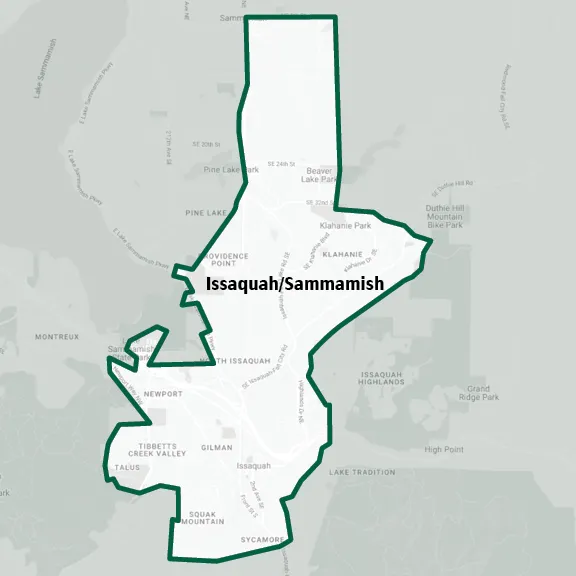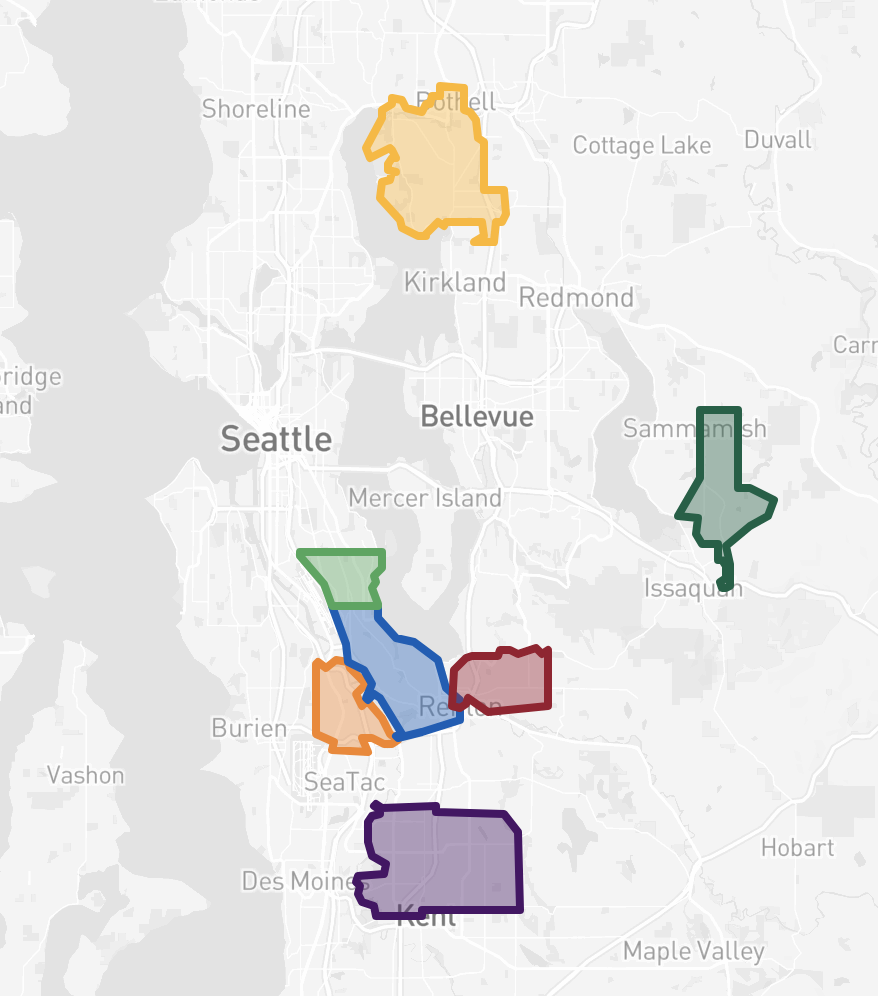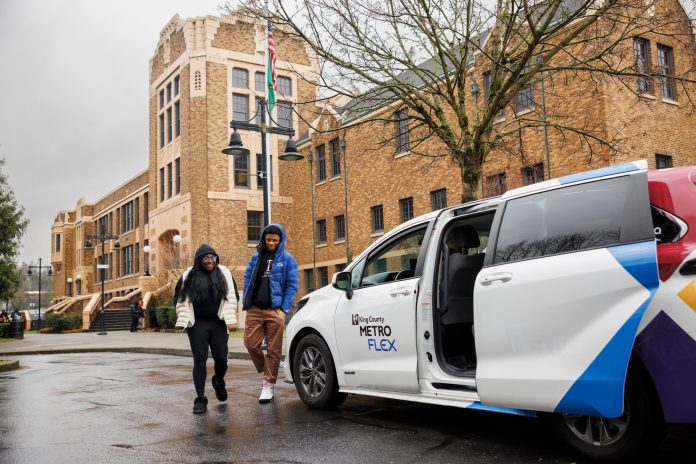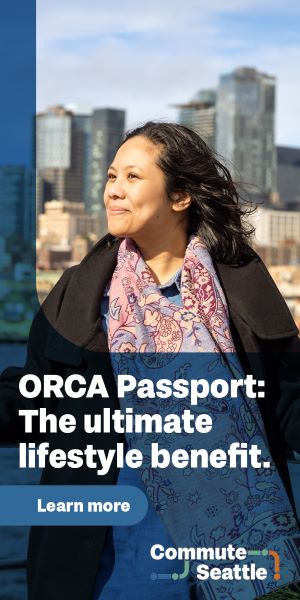King County Metro is expanding its on-demand microtransit service, Metro Flex, to serve the Issaquah area. The expanded service begins on October 16 as part of a partnership with the City of Issaquah.
The larger Metro Flex service area takes in swaths of Issaquah’s Olde Town and nearby neighborhoods, North Issaquah, and more of the Issaquah Highlands, providing Metro Flex access to most of Issaquah’s 41,000 residents. The service area already provides coverage to parts of Sammamish and a sliver of the Issaquah Highlands. Riders will able to book rides on Metro Flex vans by app anywhere in the service area. Service will operate on weekdays from 7:00am to 6:00pm and on Saturdays from 9:00am to 6:00pm.

“The City of Issaquah has been working for at least 10 years to bring an on-demand transit option to several neighborhoods historically not served by transit,” John Larson-Friend, an Issaquah transportation program coordinator said in a statement. “Metro Flex will provide our neighborhoods much needed access to local services, bus routes, and transit centers, helping to fulfill multiple aspects of the city’s comprehensive plan and mobility master plan. The added service will fill intracity mobility gaps, which will benefit all residents of Issaquah.”
The main transit facilities in the service area are Issaquah Transit Center near Gilman Village and Issaquah Highlands Park and Ride. Metro Flex will help riders further away from fixed-route bus service to get door-to-transit center service to connect with Routes 208, 218, 269, 271, 554, 556, and Trailhead Direct (seasonal).

Metro Flex originally launched service in March, essentially consolidating several earlier microtransit pilots that King County Metro had been trialing, into one brand and service approach. It provides service in six other areas of the county, covering parts of Kent, Tukwila, Renton, Kenmore/Juanita/Bothell, Othello, and Rainier Beach/Skyway. But as Metro carries out bus route restructures and creates new local partnerships, more Metro Flex service areas are likely to be added to the map.
Regular adult fares on Metro Flex are $2.75 — the same as Metro buses — and can be paid onboard using ORCA cards and digital Transit GO Tickets or before boarding by credit and debit card using the Metro Flex app or calling customer service. ORCA and Transit GO Tickets, however, can allow for free transfers to other transit services.
Aside from the new service area, Metro Flex recently pushed out an update to the app. Booking options on the home screen have been streamlined so that adding passengers to a request or changing rider classifications (e.g., youth or low-income) don’t require parsing through another screen. The update also allows riders to share their trip details from the app directly with friends and family.
Stephen is a professional urban planner in Puget Sound with a passion for sustainable, livable, and diverse cities. He is especially interested in how policies, regulations, and programs can promote positive outcomes for communities. With stints in great cities like Bellingham and Cork, Stephen currently lives in Seattle. He primarily covers land use and transportation issues and has been with The Urbanist since 2014.




